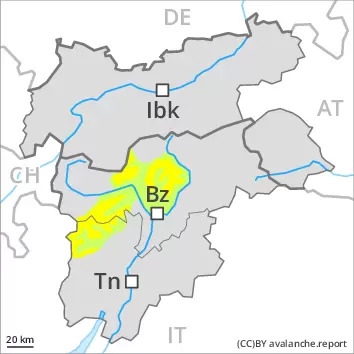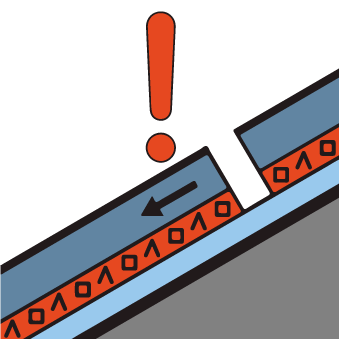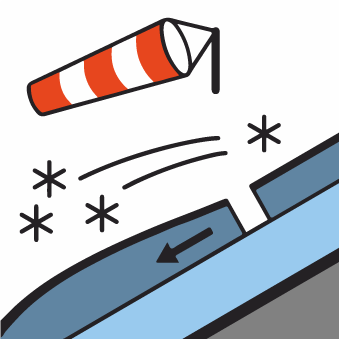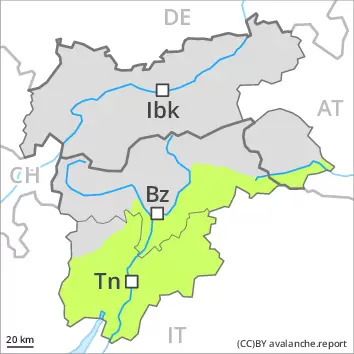
Danger level
 | 2000m |
|  |
|  | ||||
|  |
|  |

Weak layers in the old snowpack necessitate caution.
Avalanches can be released in the weakly bonded old snow in isolated cases. Caution is to be exercised at transitions from a shallow to a deep snowpack. Mostly avalanches are rather small.
In addition the sometimes avalanche prone wind slabs should be taken into account. They are to be avoided in particular on shady slopes and generally at elevated altitudes.
Snowpack
dp.7: snow-poor zones in snow-rich surrounding
dp.6: cold, loose snow and wind
Towards its base, the snowpack consists of faceted crystals, especially on shady slopes.
In some cases the various wind slabs have bonded still only poorly with the old snowpack. As a consequence of mild temperatures and solar radiation the snow drift accumulations stabilised during the last few days. Only a small amount of snow is lying for the time of year.
Tendency
The avalanche danger will persist.



